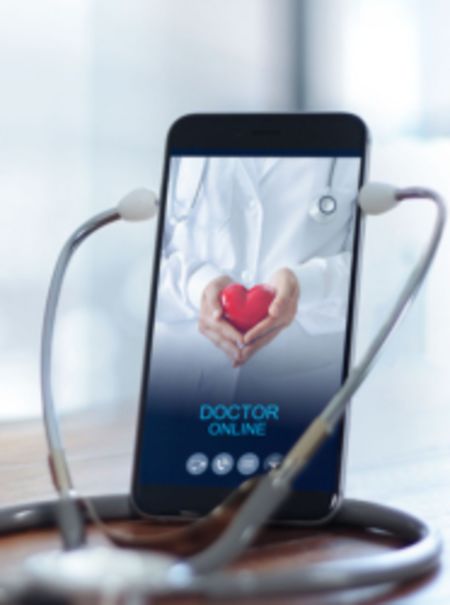The World Health Organization (WHO) defines telemedicine as the delivery of health care services by healthcare professionals in areas where distance is a critical factor and where information and communication technologies need to be used for the exchange of information regarding diagnosis, treatment and prevention. The goal of telemedicine was initially to enhance access to healthcare, but today, this is no longer the primary reason. As we learn to live with COVID-19 and as our population continues to age, there is now, more than ever, the need to maintain physical distance, reduce travel time and control costs. Face to face consultation is rapidly being replaced with on-demand and pre-planned audio and video consultations.
As per the findings of a survey conducted by KPMG, 31% of healthcare organisations use video-based telemedicine services and approximately 34% offer remote patient monitoring.
Here is a quick overview of the top telemedicine platforms that are being used to facilitate this goal:
AMC Health: This platform offers comprehensive telemedicine features and allows health monitoring and care coordination. The software allows personalisation of patient data, making it easier for assessments and dosing. A number of devices can be used remotely, such as blood pressure monitors, glucometer adapters, thermometers etc.
Mend: This is an easy to use full-featured telemedicine suite that offers both voice and video calling. It can also set up appointment reminders and allows patients to self-schedule their appointments, thus helping to reduce no-shows. In addition, the Mend suite promotes efficiency by easy to use online forms and tools that reduce the need for manual entry.
ScienceSoft: ScienceSoft is a US-based IT consulting and software development company. It offers platform-based IT solutions for a number of industries including healthcare, banking, telecommunications, education, and oil and gas to name a few. The company offers IT solutions such as telemedicine apps that are customized as per the client's needs and can be easily integrated with any internal applications being used by the organisation.
Acetiam Connect: This is another telemedicine solution that offers video conferencing and diagnostic viewer. It also allows for the secure exchange of health information and can be used for scheduling and invoicing.
Teladoc: Teladoc is not designed for emergencies, but it is a convenient solution when patients want access to a national network of doctors. It is a phone app that allows patients to speak to physicians about routine illnesses and general health issues. Both doctors and patients can access the service as long as they have a phone signal. It is an easy and efficient app for non-emergency care.
SimplePractice: This is another telemedicine platform that allows custom notes and forms, appointment reminders, billing and invoicing, mobile app and HIPAA-compliant-video consultation.
Klara: This platform offers secure patient-doctor communication via messaging and video calls. In addition, it facilitates appointment scheduling and prescription as well as allows access to lab results and other important patient data. This app not only allows efficient communication between patients and doctors, but it also helps streamline administrative tasks.
There are many other telemedicine apps and platforms that provide healthcare providers with the opportunity to better engage with their patients and to provide fast and quality care. Since the beginning of COVID-19, it is estimated that 60 to 90% of physicians are using some form of telehealth. As we adjust to this new normal, it is expected that the use of telemedicine will continue to increase. At present, telemedicine is primarily used for primary care (and some are effective enough for urgent care), but in future, it is expected that the use of telemedicine will expand into other areas, including long-term care facilities, dialysis centres, and other clinics and healthcare facilities.























